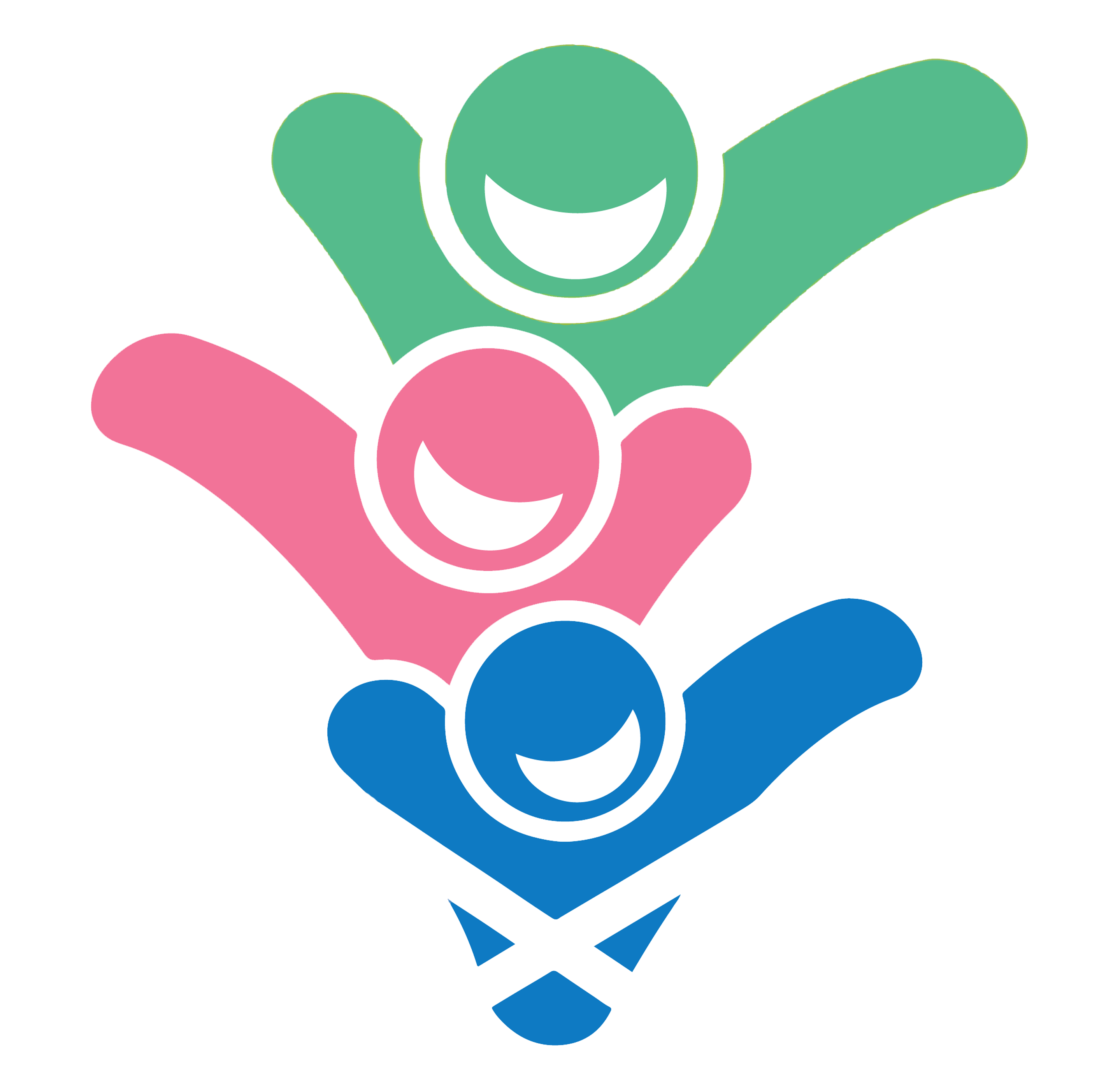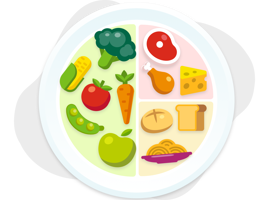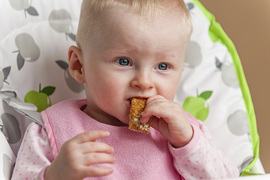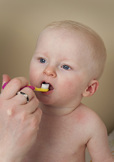Visit from Your Health Visitor
Your Health Visitor might visit you when your baby is 8 months old. You can find out more on Happy Healthy Tots.

 Every child grows and develops in their own time. If you are worried about your child's development then speak to your Health Visitor, Family Nurse or GP.
Every child grows and develops in their own time. If you are worried about your child's development then speak to your Health Visitor, Family Nurse or GP.
If you are worried your child might be unwell look at the information from the Royal Hospital for Children Concerned your child is unwell? (3 months and older).
Your Health Visitor might visit you when your baby is 8 months old. You can find out more on Happy Healthy Tots.
 Food comes in all colours, shapes, and sizes. This is the time to let your baby explore them all! It is important that you offer your baby a wide variety of textures, flavours, and a rainbow of colours. Babies should be offered the same foods as the rest of the family.
Food comes in all colours, shapes, and sizes. This is the time to let your baby explore them all! It is important that you offer your baby a wide variety of textures, flavours, and a rainbow of colours. Babies should be offered the same foods as the rest of the family.
You should continue to avoid salty and sugary foods and honey. Pasteurised cow’s milk and unsweetened non-dairy alternatives (avoid rice milk until your child is 4 ½ years old) can be used with cereal or in food but not as a main drink until 12 months of age.
Move on from mashed to lumpy foods, and from lumpy to well chopped foods. Continue to offer finger foods cut into batons like vegetables, fruit, cheese, well cooked chicken breast/fish/eggs or bread/toast.
 It is normal for a baby to gag while they are learning to eat a new food or explore a new taste or texture. It is important to avoid offering only smooth foods for too long as this can lead to babies refusing lumps.
It is normal for a baby to gag while they are learning to eat a new food or explore a new taste or texture. It is important to avoid offering only smooth foods for too long as this can lead to babies refusing lumps.
Most babies will be moving on from two to three meals a day by this stage. Your baby will guide you on how much they need to eat. It is normal for their intake to vary day-to-day.
Your baby’s usual milk should still be the biggest part of their fluid intake. You should offer tap water in a free-flow or open cup with meals.
For more information look at
If you have any questions then please speak to your Health Visitor or Family Nurse.
Your baby now uses their thumbs whilst grasping objects. They enjoy banging two objects together.
Give your baby a treasure box - have a box with objects of different textures inside. Your baby can explore the objects, tip the objects out of the box and put them back in. You could also give your baby pots, pans, plastic bowls, boxes and different types of spoons. Great for noisy play and hand skills. Find out more from CBeebies Parenting Making sounds for baby.
Get your baby to help you with the washing, they love to copy you and it helps them to develop their hand skills. They can put the clothes into the washing basket or help you put them in the washing machine. Remember to keep them away from the washing powder, liquid or tabs though. You can find out more about poisoning prevention using from the Child Accident Prevention Trust, you can also download their prevent poisoning fact sheet.
Your baby's balance skills are developing. They can sit unsupported for several minutes. Remember to keep an eye on them though. Once your baby has mastered sitting, encourage them to reach out to the front, side, back and up for toys. Eventually, your baby will move from sitting to lying in a controlled way.
Whilst lying on their back, your baby may have discovered that they can put their feet in their mouths. Early baby yoga!
Your baby will find their own way of exploring when they are on the floor. This might include wriggling, rolling or crawling on their tummy (commando crawling). Others may choose to bottom shuffle across the floor.
Your baby will start to push up onto their hands and knees. They might enjoy rocking backwards and forwards in this position. They are getting ready to crawl.
Keep care routines fun. Your baby might be interested in helping wash their face or hands. Take turns and play with the water. Try giving your baby something to hold at nappy changing time to keep them still and their hands busy while you get them cleaned up.
Your baby will enjoy holding food and putting it to their mouth. Give your baby a spoon while you are feeding them so they can start to learn how to move it ready for feeding themselves. It is still important that your baby touches the food with their hands too, let them get messy. They are also able to drink from a free flow cup with help to hold it. Find out more from CBeebies Parenting Chatting together at snack time.

Brushing your teeth is an essential part of looking after your body. You should be brushing your child's teeth at least twice a day. You can find out more from:
Your baby can recognise their own name and will turn when they hear their name. They can understand important words like 'no' and 'bye' and enjoy listening to other people.
Your baby will use their voice to get your attention. They are starting to string sounds together like 'bababa'. They can change the tone of their voice. Find out more from CBeebies Parenting Baby babble activity.
Your baby enjoys sharing games with you like 'round and round the garden'. They can wave 'bye-bye' and shake their head for 'no'. Your baby likes copying you.
Find out more from Parent Club Top tips for chatting together with your baby.
Even when you are out of your baby's line of vision, they can turn in the direction of your voice.
Babies explore the world around them using their hands and mouth. Try making a sensory surprise for your baby so they can explore. Find out more from CBeebies Parenting Make a sensory surprise for your baby.
We are one of the leading paediatric care centres in the UK, and the largest in Scotland. We provide family centred care to newborns, infants, children and young people both in hospital and in the community.
https://www.glasgowchildrenshospitalcharity.org/